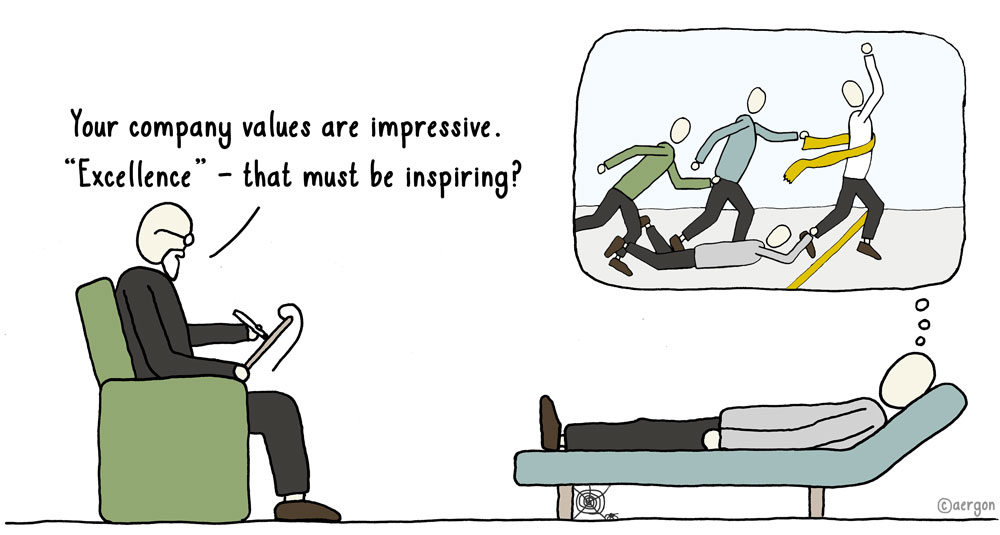
Transformation Perspectives Series 04
Values Part 1: Why are our values so relevant and how can we put them into practice in a more constructive way?
Our values and behavior are influenced by a wide range of factors – both internal and external. However, if we want to make sustainable changes, whether in a personal or organizational context, they need to be based on a sustainable foundation. Internally, this relates primarily to our mindset, which is linked to our basic needs. In turn, our mindset is defined primarily by our internal values and beliefs. Accordingly, values are a tried and proven lever for change, because they bundle together focus and personal energies, mostly at a subconscious level.
Similarly, as a manager, it is essential that you learn to be more aware of your own values and beliefs, because these constantly influence your decisions and approaches. Do you know your own most important values, and where they stand in the hierarchy? Do you understand the beliefs and trade-offs associated with your values? Do you understand how your personal values are linked to the company values?
A deeper understanding of our own values helps us to put them into practice in a more constructive way. Because each value can only develop its full, constructive impact if it is undistorted and in dynamic balance with other values. Without this balance, a value becomes exaggerated, undermining its own usefulness.
Graph: Dynamic Balance of Values and Associated Behaviors (based on Bernhard Possert)

Accordingly, values such as trust – a basic requirement for successful teamwork – can be understood as the counterpart of its opposite pole, the positive value of caution. When exaggerated, trust can quickly turn to naivety, and over-cautiousness can become control mania, or even lead to paranoid behavior. Schulz von Thun’s Four Sides Model is based on the conviction that every person, with his or her own individual personality, harbors inside them an undiscovered alter ego, waiting to be aroused and developed.
In this context, undesirable value distortions can be seen as the result of an underdeveloped alter ego, i.e. not accessed or expressed values. However, these alter egos are all too often distorted through associated beliefs, nourished by our personal experience and socialization. These beliefs influence how we interpret our values, and may incorporate errors or distortions, leading us to behave inappropriately in a given situation. Conscious reflection and engagement with our own beliefs and values and those of our team and organization helps us to free ourselves of “outdated” beliefs, or to reinterpret them, thus enabling us to make use of our values more effectively, and, at the end of the day, to act in a way more appropriate to the situation we find ourselves in. This is how we create a constructive, values-based culture.
Pierre Bachmann and Dr. Thomas Gartenmann
This is part of the Transformation Perspectives Series by www.aergon.com

